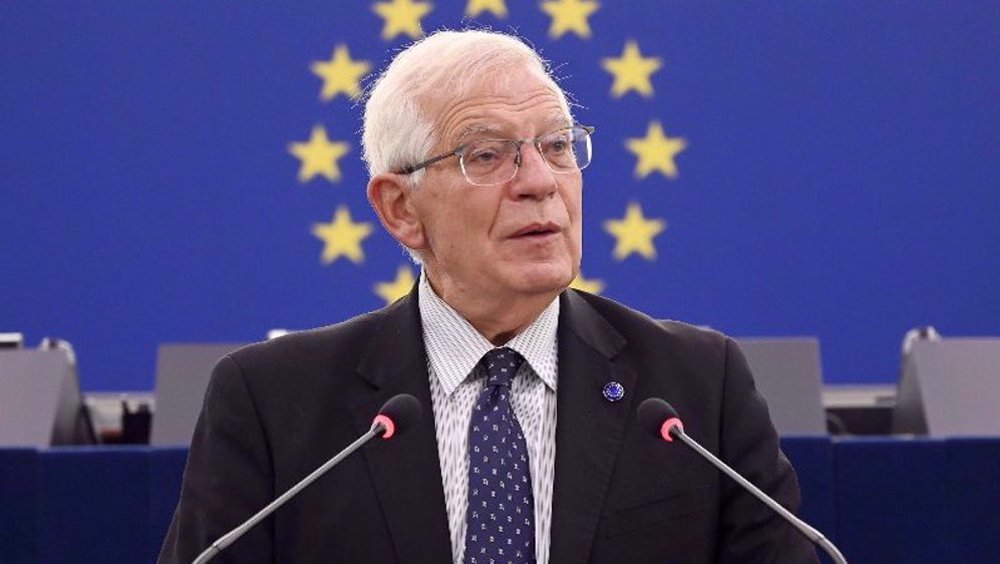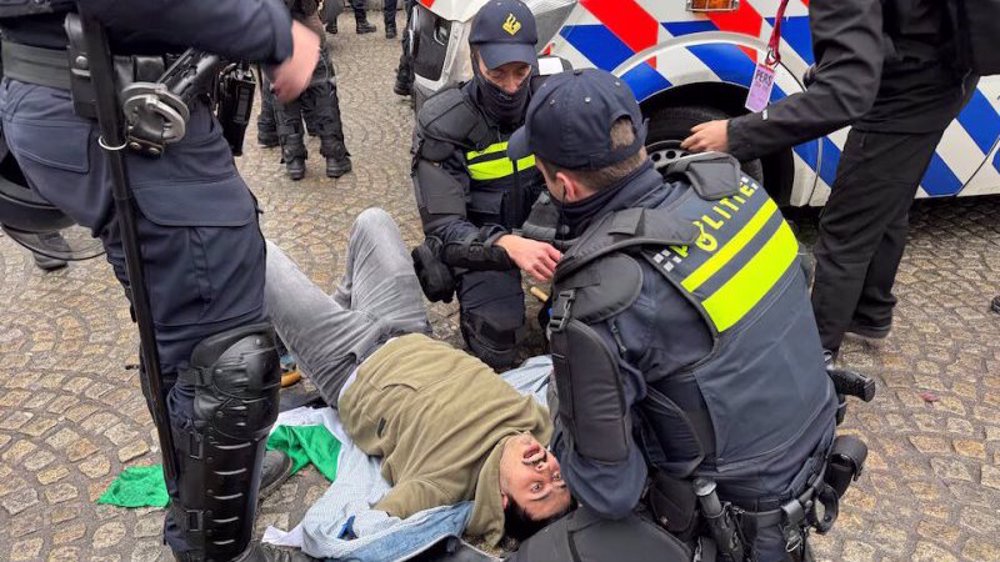Slovenia, Croatia restrict transit of refugees as crisis worsens
Slovenia and neighboring Croatia have banned the transit of most refugees through their countries to seal off the Balkan route used by conflict-hit people to reach northern Europe.
Slovenia's Interior Ministry said late Tuesday that only “foreigners meeting the requirements to enter the country” would be allowed access from midnight.
Refugees will be selected "on a case by case basis on humanitarian grounds and in accordance with the rules of the Schengen zone,” the statement added.
Croatia also adopted similar restrictions and refused transit to most refugees as of early Wednesday.
"Apparently Europe has decided to start a new phase in resolving the migrant crisis. It was concluded that on the Schengen zone borders the Schengen rules would be applied," said Croatian Interior Minister Vlaho Orepic, whose country is not part of visa-free Schengen zone.
Croatia also said it would only grant access to refugees with proper visas.
Serbia also said it would follow suit and impose similar restrictions at its borders with Bulgaria and Macedonia.

Meanwhile, Macedonia imposed new restrictions over the weekend, allowing refugees only from cities that are at war, such as Syria’s northern city of Aleppo.
The move by Slovenia and Croatia came only a day after the European Union (EU) and Turkey drafted a proposal to halt the flow of refugees to Europe. Turkey, home to some 2.7 million Syrians, is the main launching point for many refugees who have made the dangerous crossing to Europe.
The EU agreed to Ankara’s proposal to take back all refugees who land on Greece’s islands. In return for every refugee Turkey takes, the bloc would resettle one Syrian refugee from Turkish camps.
The proposal sparked concerns among UN officials and human rights organizations.
“I'm deeply concerned about any arrangement that would involve the blanket return of anyone from one country to another without spelling out the refugee protection safeguards under international law," UN refugee chief Filippo Grandi said.
Amnesty International also warned that the proposal had “moral and legal flaws” and raised doubt that Turkey was a “safe” country to return refugees.
"The idea of bartering refugees for refugees is not only dangerously dehumanizing, but also offers no sustainable long-term solution to the ongoing humanitarian crisis," the rights group’s Iverna McGowan said.
Jordan sentences former lawmaker for supporting Palestinian resistance
Basij volunteer forces hold massive drills in southwestern Iran
Israeli war criminals 'not welcome', US city says after ICC ruling
US vetoing of Gaza ceasefire resolution ‘disgraceful’: Iran’s UN envoy
VIDEO | IAEA adopts anti-Iran resolution tabled by E3
VIDEO | Iran's president urges Pope to help end Israel's onslaught in Gaza
Iran's senior legal official: ICC arrest warrant for Netanyahu ‘great victory'
Nov. 21: ‘Axis of Resistance’ operations against Israeli occupation

















 This makes it easy to access the Press TV website
This makes it easy to access the Press TV website